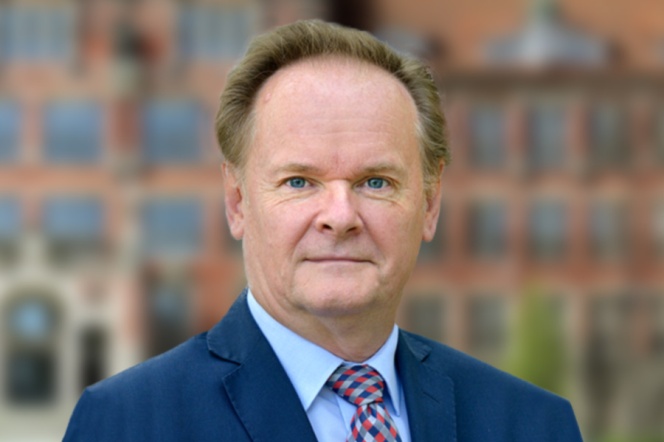Date added: 2023-02-21
Science requires constant curiosity. Conversation with prof. Sławomir Milewski, vice-rector for science

Barbara Kuklińska: Sir, I think it is worth starting our conversation with the final results of the evaluation that the university has recently received, as it is a cause for joy.
Prof. Sławomir Milewski, Vice-Rector for Science: Of the fourteen scientific disciplines evaluated, six received the highest A+ grade, another six A grade, and only two were awarded the B+ category. The first results, from the end of last year, before the appeals were filed, put Gdańsk University of Technology in third place in Poland in terms of the number of A+ categories awarded. The Ministry of Education and Science has not yet published a full list of the final results, because not all universities have received decisions after appeals, but it is possible that we can rank even higher. The evaluation was carried out under three criteria: scientific "efficiency" measured by the number of publications, the effectiveness of obtaining external funds to finance research and development work, and the impact of scientific activity on the functioning of society and the economy. The results of the Gdańsk Tech evaluation indicate a very good scientific condition of our university, they are satisfying and stimulating for further work.
In the same year that the Polish Science Day was established, Gdańsk University of Technology obtained the status of a research university and began to implement the IDUB program. Is it already possible to notice the effects of this support?
Of course. Using the funds from the additional subsidy of the Ministry of Education and Science, we implement over 30 internal grant programs that support primarily researchers, but also students, doctoral students, teaching and administrative staff. Last year, almost 600 grant and scholarship applications were submitted in 21 announced calls for proposals. Nearly 300 projects and initiatives worth nearly PLN 45 million have been launched or implemented.
More and more of our scientists benefit from the programs implemented under IDUB, and there are measurable effects - an increasing number of scientific publications in high-scoring journals, patent applications, creation of international research teams, partnerships with foreign research centers.
Gdańsk University of Technology is now part of the Fahrenheit Universities, which opens up new fields of cooperation for scientists.
Present day science is highly interdisciplinary, and collaboration within the FarU facilitates this. Identifying fields of cooperation and enabling scientists not only to establish contacts, but also to exchange experiences, views and plans - such scientific networking is conducive to the implementation of scientific projects on the borderline of several fields. We are currently in the process of implementing the Science Speed Dating initiative. Under this name lies the organization of a series of thematic meetings in which scientists from the Medical University of Gdańsk, the University of Gdańsk and our university will participate. It will be an opportunity to get to know each other and to develop guidelines for future joint scientific projects, for example in the field of environmental protection, implementation of sustainable development goals or solving energy problems, where cooperation of scientists from many different fields is needed.
Is it easier to be a scientist now or twenty, thirty years ago?
It is difficult to answer this question unequivocally. Certainly, there has been a huge improvement in the organizational and logistic aspects of research work. We have access to the most modern scientific equipment, there are no problems with the purchase of materials for laboratory tests. We operate on an international level, in the open world, we can use countless sources of knowledge, go on foreign internships, participate in conferences. The downside of the current situation, there is no need to hide it, is the deteriorating financial situation of young scientists. The low level of salaries of assistants or assistant professors does not encourage young people to take up a scientific career, and some of those who took up this challenge some time ago are forced to give it up.
Can the university influence this situation on its own?
To a certain extent. This is also where programs created as part of IDUB come in handy. Thanks to them we enable our scientists to obtain additional remuneration, for example in the form of scholarships for doctoral students. In this regard, it is worth mentioning our Polonium and Francium programs, under which we offer additional scholarships for both Polish and foreign students of the doctoral school. Our scientists also receive bonuses for publications in the best journals and international patents. We also try to eliminate formal limitations that may slow down research work, for example by reducing the teaching load. If a scientist participates in a time-consuming research project, he or she may apply for a temporary reduction in the number of obligatory teaching hours. We cannot compete with the economic environment in terms of employee earnings, but we try to support our scientists in various ways, including material incentives.
What should we wish scientists on the Polish Science Day?
Constant curiosity, because curiosity makes us ask questions and look for solutions. Patience, because finding these answers is often a long and tedious process. Setting scientific goals and perseverance in their implementation. And optimism, because nowadays it is very useful for everyone.

